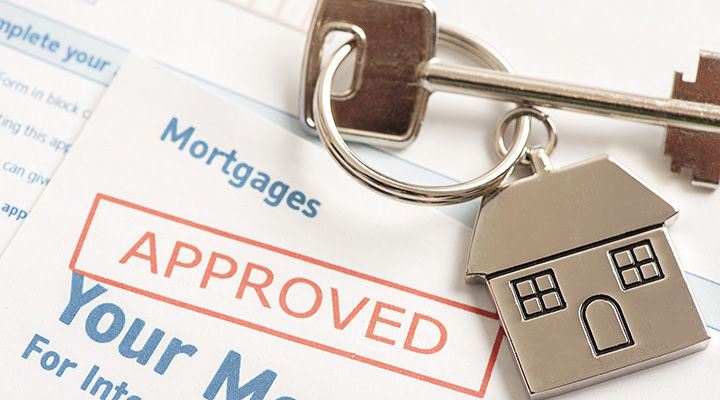Learn how to balance your finances with Fast Cash and Cash Loan options for enhanced flexibility
A Comprehensive Guide to Home Loans: Provider and Options Explained
Charting the world of home mortgage can be complex. Different alternatives exist, each with unique functions and implications for possible homeowners. Comprehending the distinctions between government-backed and traditional loans is important. Additionally, the application procedure entails meticulous documentation and pre-approval actions that numerous overlook. As borrowers start on their home-buying journey, understanding exactly how to take care of these obligations effectively might suggest the distinction in between financial stability and difficulty. What strategies can equip them on this path?
Recognizing Home Loans: Types and Terms
Understanding the different kinds of home finances and their connected terminology is important for potential homeowners, as it outfits them with the expertise needed to make informed monetary decisions. Home car loans can be extensively classified right into fixed-rate and adjustable-rate home loans. Fixed-rate home loans preserve a regular passion rate over the life of the lending, giving security in regular monthly repayments. Cash Advance. On the other hand, adjustable-rate home loans feature rates of interest that might change after a preliminary set duration, potentially resulting in lower preliminary repayments yet enhanced future costs
Extra terms is essential for quality. Principal describes the car loan amount borrowed, while passion is the expense of loaning that quantity. The term of the funding shows its duration, generally varying from 15 to 30 years. Recognizing these fundamental concepts enables prospective buyers to navigate the complex landscape of home financing, guaranteeing they pick the right car loan option that straightens with their economic situation and lasting goals.
Standard Fundings vs. Government-Backed Loans
A significant difference in home funding exists between conventional car loans and government-backed loans, each dealing with different consumer requirements and situations. Conventional fundings are not guaranteed or assured by the government and usually call for higher credit rating and down settlements. They are frequently attracting customers with secure monetary histories, as they might provide affordable interest prices and terms.
On the other hand, government-backed loans, such as FHA, VA, and USDA financings, are designed to aid details groups of borrowers, including novice buyers and professionals. Cash Advance. These loans normally feature lower down repayment demands and even more versatile debt criteria, making them easily accessible to a wider array of people
Ultimately, the selection between government-backed and standard loans rests on the debtor's economic situation, long-term goals, and eligibility, making it important to carefully examine both options prior to deciding.

The Role of Rates Of Interest in Home Funding
Interest prices play an essential duty in home financing, influencing customers' decisions between variable and set rate loans. The choice in between these choices can substantially affect month-to-month payments, affecting general price. Recognizing exactly how rate of interest prices operate is necessary for any individual steering with the home mortgage process.
Dealt With vs. Variable Prices
Homebuyers deal with a vital decision when selecting between taken care of and variable rates, as this option considerably influences the price of financing over time. Fixed-rate home loans use stability, locking in a rate of interest price for the life of the loan, which can be advantageous in a rising rates of interest environment. This predictability allows home owners to budget a lot more successfully. Alternatively, variable-rate home loans, or adjustable-rate home loans (ARMs), typically start with lower preliminary prices that can change based on market problems. While this may cause reduced initial payments, customers face the risk of boosted prices in the future. Ultimately, the choice between variable and fixed prices depends on private monetary circumstances, risk tolerance, and assumptions concerning future passion rate fads.
Impact on Month-to-month Settlements
When reviewing home funding alternatives, the impact of rates of interest on month-to-month payments is a vital factor to consider. Rate of interest directly affect the total cost of borrowing, influencing just how much a borrower will pay each month. A lower rate of interest rate lead to smaller sized monthly payments, making homeownership much more affordable. On the other hand, greater prices can considerably raise monthly responsibilities, potentially stressing a home owner's budget. Additionally, the financing term plays an essential role; longer terms may spread out settlements out yet can bring about paying even more rate of interest gradually. Comprehending exactly how interest prices engage with finance amounts and terms is necessary for borrowers to make enlightened monetary choices and select a home mortgage that straightens with their lasting economic goals.
Mortgage Brokers vs. Direct Lenders: Which Is Right for You?
When taking into consideration a mortgage, possible debtors must comprehend the distinctive duties and obligations of mortgage brokers and direct lending institutions. Each option offers its own advantages and disadvantages, which can substantially affect the overall expense of financing. An enlightened selection needs cautious analysis of these variables to determine the very best suitable for private demands.
Duties and Duties Defined
Navigating the intricacies of home funding needs a clear understanding of the roles and duties of home mortgage brokers and direct loan providers. Home mortgage brokers function as middlemans, connecting debtors with lenders. They analyze a consumer's financial situation, curate finance alternatives, and guide customers via the application procedure, frequently leveraging numerous loan provider partnerships to secure favorable terms. Alternatively, direct lending institutions, such as financial institutions and credit report unions, offer financings directly to customers. They manage the whole loan process, from application to financing, with an emphasis on their own products. Each choice offers unique avenues for getting funding, making it necessary for borrowers to assess their preferences and requirements when determining in between involving a home mortgage broker or dealing with a direct lending institution.
Benefits and drawbacks Comparison
Selecting between a home mortgage broker and a direct lender can substantially affect the home funding experience, as each choice provides special benefits and downsides. important source Home mortgage brokers offer as intermediaries, supplying accessibility to numerous loan providers and possibly far better prices, while streamlining the funding procedure. They may charge fees and count on compensation frameworks that might influence their recommendations. On the other hand, direct lenders improve the process by providing in-house lendings, which can bring about quicker approvals and less issues. On the other hand, they may have a minimal choice of items and much less versatility pertaining to rates. Inevitably, the choice depends upon private preferences, monetary situations, and the desired level of assistance throughout the mortgage journey.
Price Implications Examined
While evaluating the price implications of mortgage brokers versus straight loan providers, potential house owners must consider different factors that can considerably influence their total expenditures. Mortgage brokers typically bill costs for their services, which can differ substantially, influencing the general finance expense. They commonly have access to a bigger variety of loan products and competitive prices, possibly saving customers cash in the lengthy run. On the other hand, straight lending institutions might use a more simple procedure with possibly lower ahead of time expenses, however their car loan choices might be restricted. It is important for homeowners to compare rate of interest, costs, and terms from both brokers and loan providers, guaranteeing they make an informed choice that straightens with their financial objectives and needs.
The Home Mortgage Application Refine: What to Anticipate

The home loan application procedure can often really feel daunting for many applicants. It normally starts with collecting essential documentation, including evidence of income, credit rating, and personal identification. Lenders utilize this info to analyze the applicant's financial stability and identify finance qualification.
Next off, applicants send an official application, which might entail completing on the internet types or providing information in person. During this stage, loan providers review numerous factors, such as debt-to-income proportion and credit history, to select loan terms.
When pre-approved, the lender will carry out an extensive appraisal of the residential property to establish its value lines up with the funding quantity. This stage may likewise consist of extra history checks.

After final approvals and problems are met, the loan is refined, leading to the closing phase. Comprehending each action empowers applicants, making the journey smoother and a lot more manageable as they relocate toward homeownership.
Tips for Handling Your Mortgage Sensibly
Effectively maneuvering the mortgage application procedure is simply the start of a liable economic journey. Handling a home car loan calls for attention to numerous key methods. Consumers ought to establish a clear budget that accommodates month-to-month home mortgage payments, building taxes, and insurance coverage. On a regular basis assessing this budget plan aids prevent overspending and guarantees prompt payments.
Furthermore, making extra repayments when feasible can substantially lower the financing principal and total interest paid in time. Borrowers should also preserve open lines of communication with their lending institution, particularly in times of monetary difficulty. This can result in possible services such as financing adjustments or re-financing alternatives.
It is recommended to keep track of credit history ratings frequently. An excellent credit report rating can supply opportunities for far better finance terms in the future. Payday Loans. By complying with these suggestions, homeowners can browse their financing duties successfully, ensuring lasting financial wellness and security
Frequently Asked Inquiries
What Are Closing Costs and How Are They Determined?
Closing expenses incorporate charges related to wrapping up a mortgage, consisting of appraisal, title insurance, and loan source charges. go to this web-site These costs typically range from 2% to 5% of the finance amount, varying based on place and lending institution.
Can I Receive a Mortgage With Bad Credit Score?
Yes, individuals with negative debt can receive a home finance, though alternatives may be restricted. Lenders typically call for higher down repayments or rate of interest, and discovering government-backed lendings might boost opportunities of approval.
What Is Home mortgage Insurance policy and When Is It Called for?
Mortgage insurance policy safeguards lending institutions against default and is generally called for when a borrower makes a deposit of less than 20%. It ensures that lending institutions recover losses if the consumer falls short to settle the lending.
Just How Does Refinancing Job and When Should I Consider It?
Refinancing entails replacing an existing home mortgage with a new one, usually to secure a you can look here lower rates of interest or change loan terms. House owners need to consider refinancing when rate of interest prices go down considerably or their economic circumstance improves.
What Takes place if I Miss a Home Mortgage Payment?
If a home mortgage repayment is missed, the lending institution commonly analyzes late charges, reports the delinquency to credit scores bureaus, and might start repossession procedures if settlements remain to be neglected, at some point jeopardizing the homeowner's building.
Fixed-rate home loans maintain a consistent interest rate over the life of the funding, providing security in month-to-month repayments. A significant difference in home financing exists in between government-backed loans and standard finances, each catering to different borrower demands and scenarios. In contrast, government-backed financings, such as FHA, VA, and USDA finances, are developed to assist certain teams of customers, including newbie property buyers and experts. Passion prices play an essential role in home financing, affecting borrowers' decisions in between fixed and variable rate loans. Fixed-rate mortgages use stability, locking in a passion rate for the life of the funding, which can be advantageous in a climbing passion price environment.